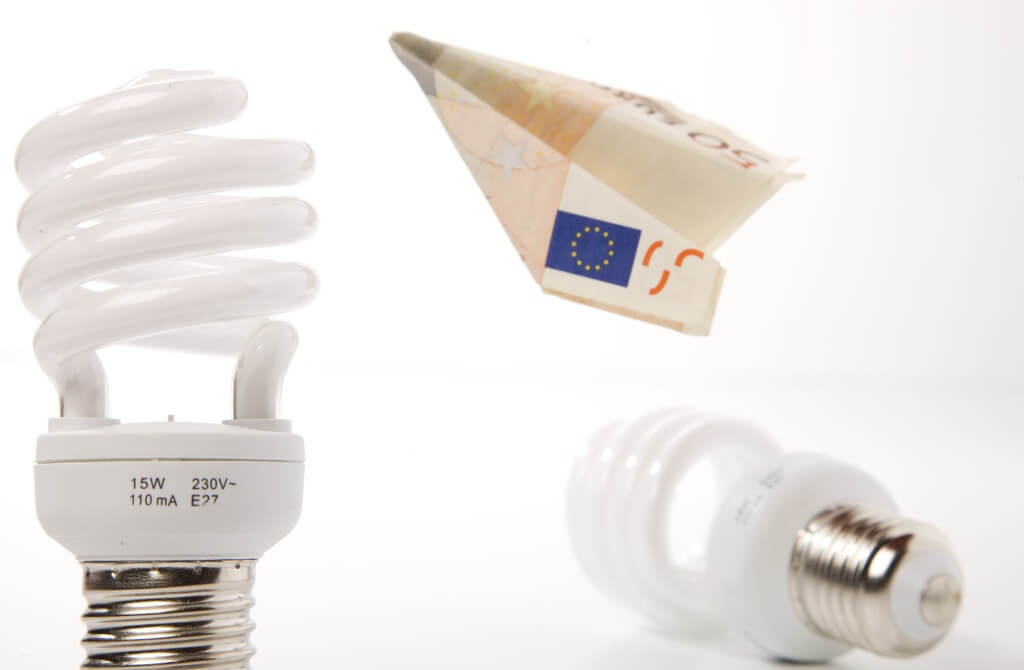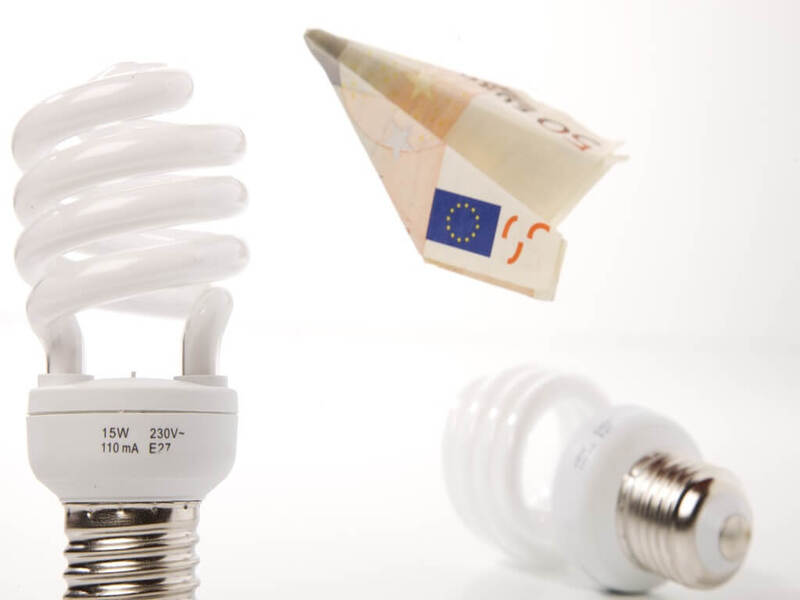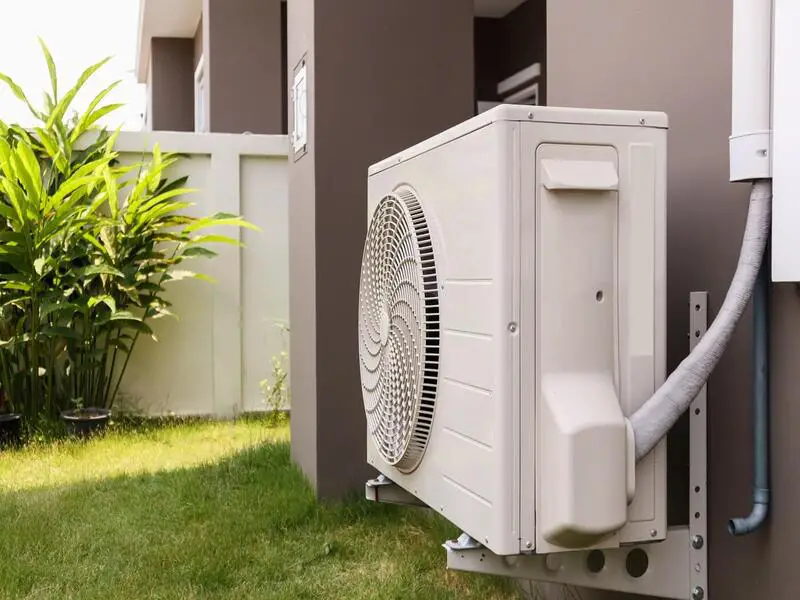Energy is an essential resource for our daily lives. It powers our electronic devices, lights our homes, and moves our vehicles. However, excessive energy consumption can have a significant impact on the environment and our electricity bills. Fortunately, there are ways to reduce energy consumption at home. In this article, we will discuss how you can save energy at home and reduce your carbon footprint.
Swap Your Light Bulbs
If you’re looking for an easy and effective way to reduce your energy consumption at home, swapping your light bulbs can make a big difference. Traditional incandescent bulbs are highly inefficient, wasting a significant amount of energy by emitting heat instead of light. By replacing them with LED or compact fluorescent bulbs, you can save up to 75% of the energy consumed by your lighting system.
In addition to energy savings, LED bulbs are also much more durable than incandescent bulbs. On average, they can last up to 50,000 hours, which is more than 50 times longer than a traditional incandescent bulb. This means you won’t have to replace your bulbs as often, saving you money on replacements and reducing waste.
When choosing the right bulbs for your home, it’s important to consider not only energy efficiency but also the atmosphere of your space. LED bulbs come in a variety of colors and brightness levels, allowing you to customize the lighting in your home to your specific needs. This can make your space feel more comfortable and inviting, while also helping to improve your visual health.
Another benefit of LED bulbs is that they are free from harmful chemicals such as mercury, which is commonly found in traditional fluorescent bulbs. This means that they are safer for you and the environment. By making the switch to LED bulbs, you’re not only saving money and energy but also making a positive impact on the planet.

Turn off Electronic Devices
In today’s digital age, we rely heavily on electronic devices in our daily lives. However, even when not in use, many of these devices continue to consume energy, leading to higher electricity bills and increased carbon emissions. To reduce your energy consumption and save money, it’s important to turn off electronic devices when they’re not in use.
One easy way to accomplish this is to use a power strip with an on/off switch. This allows you to turn off multiple devices with the flip of a switch, making the process much easier and more convenient. By turning off devices such as your TV, computer, and gaming console when they’re not in use, you can save up to 10% on your energy bill.
In addition to reducing your energy consumption and saving money, turning off electronic devices when not in use can also reduce the risk of fires caused by devices that remain on for too long. Over time, electronic devices can overheat and become a fire hazard if they are left on for extended periods. By turning them off when not in use, you can help prevent these dangerous situations from occurring.
It’s also important to note that standby or sleep mode is not the same as turning off your electronic devices. While these modes use less energy than full operation, they still consume a significant amount of energy over time. To truly reduce your energy consumption and save money, it’s best to completely turn off devices when you’re finished using them.
Use Your Washing Machine Smartly
Washing clothes is a necessary household chore that consumes a considerable amount of energy and water. However, by using your washing machine smartly, you can reduce your energy and water consumption, and even save money on your utility bills.
One way to save energy when doing laundry is to wash your clothes in larger batches and at lower temperatures. This not only saves energy but also helps to preserve the quality of your clothes. Washing clothes frequently and in small amounts can use a lot of energy, so it’s best to wait until you have a full load of laundry before running the washing machine.
Another way to save energy is to choose shorter wash programs and turn off the pre-heating function of the machine, if possible. Pre-heating the water requires a significant amount of energy, so avoiding this step can help reduce your energy consumption. Additionally, using cold water instead of hot water can save even more energy.
It’s also important to be mindful of the amount of detergent and fabric softener you use when washing your clothes. Using too much of these products not only wastes money but also creates more waste that can harm the environment. By reducing the amount of detergent and fabric softener you use, you can make your laundry process even more sustainable.
Finally, consider using a high-efficiency washing machine, which uses less water and energy than traditional machines. These machines are designed to be more energy-efficient, which means you can save money and reduce your environmental impact over time.
Reduce the Use of Air Conditioning and Heating.
Reducing the use of air conditioning and heating in your home can have a significant impact on your energy consumption. While it may not always be possible to completely avoid using these appliances, there are several things you can do to reduce your reliance on them.
During the summer months, consider using ceiling or table fans instead of air conditioning. Fans can help circulate cool air and create a breeze, making it feel cooler and more comfortable indoors. If you must use air conditioning, make sure to set it to a higher temperature and close any doors or windows to keep the cool air inside. This will help reduce the amount of energy needed to keep your home cool.
In the winter, try to keep your home warm by wearing warm clothes and using blankets instead of relying solely on your heating system. Set your thermostat to a lower temperature and avoid heating unused areas of your home. If you have a programmable thermostat, you can set it to automatically lower the temperature at night or when you are away from home, further reducing energy consumption.
It’s also important to regularly clean the air conditioning filters to ensure they are working efficiently. Dirty filters can reduce the airflow, making the appliance work harder to cool or heat your home, leading to increased energy consumption.
By reducing your use of air conditioning and heating and being mindful of your energy consumption, you can save money on your energy bills while also reducing your carbon footprint.
Improve the Thermal Insulation of Your Home
Improving the thermal insulation of your home can help reduce energy consumption and make your living space more comfortable throughout the year. Proper thermal insulation can prevent heat loss during winter and heat gain during summer, which reduces the need for heating and air conditioning.
Start by checking if your windows and doors are well-sealed to prevent drafts. If you notice any gaps or cracks, you can seal them with weatherstripping or caulking. This can prevent air leaks and improve the energy efficiency of your home.
Consider installing double-glazed windows or window films to reduce the transfer of heat through the windows. Double-glazed windows have two panes of glass with a layer of gas between them that helps to reduce heat transfer, while window films are thin sheets that you can apply directly to your windows to reduce the amount of heat that passes through them.
Another way to improve thermal insulation is by insulating your attic. Attic insulation can help to maintain a more constant temperature in your home, reducing the need for air conditioning and heating. You can install insulation batts or rolls made from materials such as fiberglass or cellulose in your attic. These materials help to trap air and prevent heat transfer.
Invest in Solar Panels
Investing in solar panels can be a great way to reduce your energy consumption and costs. Solar panels use photovoltaic cells to convert sunlight into electricity, which can be used to power your home. By producing your own renewable energy, you reduce your reliance on traditional grid energy, which is often generated from non-renewable sources such as coal and gas. This not only helps to reduce your carbon footprint but can also save you money on your energy bills in the long run.
In addition to the benefits of producing renewable energy, many governments and local authorities offer tax and financial incentives for installing solar panels at home. These incentives can help to offset the initial cost of installation, making solar panels a more affordable option for many homeowners. Additionally, some countries allow homeowners to sell excess energy back to the grid, further reducing energy costs and increasing the return on investment.
When considering installing solar panels, it’s important to consult with a professional to ensure that your home is suitable for solar energy production. Factors such as the orientation of your roof, the amount of sunlight your property receives, and the size of the solar panel system required should all be taken into account.
Use Appliances with Energy Efficiency Rating
Using appliances with energy efficiency ratings is an effective way to reduce energy consumption at home. When shopping for appliances, it’s important to look for those with the Energy Star label or other energy efficiency ratings. These appliances are designed to use less energy than their less efficient counterparts, and can save you money on your energy bills in the long run.
There are many types of appliances that can benefit from an energy efficiency rating, including refrigerators, dishwashers, washing machines, and dryers. By choosing an energy-efficient refrigerator, for example, you can save up to 40% of energy compared to a standard refrigerator. Similarly, an energy-efficient dishwasher can save up to 12% of energy and 30% of water compared to a less efficient model.
Another benefit of using appliances with energy efficiency ratings is that they often come with additional features that can help reduce energy consumption. For example, some refrigerators have smart features that allow you to adjust the temperature remotely, while others have automatic defrost settings that can save energy by reducing the need for manual defrosting.
In addition to saving you money on your energy bills, using energy-efficient appliances can also help to reduce your carbon footprint. By consuming less energy, you are reducing the amount of greenhouse gas emissions that are released into the atmosphere, which can help to mitigate climate change.
Turn Off the Water Heater
Hot water heaters are among the largest consumers of energy in many homes. While they are convenient, they can use a lot of energy to keep the water hot at all times, even when you are not using it. To reduce your energy consumption, consider turning off the water heater when you don’t need it. This can save you a significant amount of money on your energy bills.
If you are concerned about the inconvenience of turning off the water heater, you can opt for a timer switch that will automatically turn the heater off during periods when it is not needed. For example, you can program the switch to turn the heater off at night or when you are away from home. This way, you can still enjoy the convenience of hot water without wasting energy.
Another option to consider is installing a solar water heater. Solar water heaters use the sun’s energy to heat the water, which is not only more environmentally friendly but can also save you money on your energy bills. While the initial investment in a solar water heater may be higher, you will see significant savings in the long run.
Use Natural Light
Using natural light is an excellent way to save energy and create a more sustainable home. By opening curtains and blinds, you can allow natural light to fill your home, reducing the need for artificial lighting during the day. Not only does this help to save energy and reduce your electricity bill, but it can also create a more pleasant and natural atmosphere in your home.
One way to further enhance the benefits of natural light is to paint the walls of your home with light and bright colors. These colors reflect natural light better than darker shades, helping to illuminate your home even further. This, in turn, can help reduce the need for artificial lighting during the day, contributing to a more sustainable home.
Another benefit of natural light is its positive impact on mental and physical health. Natural light is proven to improve mood and productivity, as well as regulate the body’s natural sleep-wake cycle. By incorporating more natural light into your home, you can improve your overall well-being while also reducing your energy consumption.
Conclusion
There are many ways to reduce energy consumption at home. From changing light bulbs to installing solar panels, each small change can make a big difference in energy savings and reducing carbon footprint. Additionally, most of the tips mentioned in this article not only save energy but also save money in the long run. Remember that energy conservation is important for the environment and for your wallet. So start implementing these changes today and do your part for a more sustainable future!




